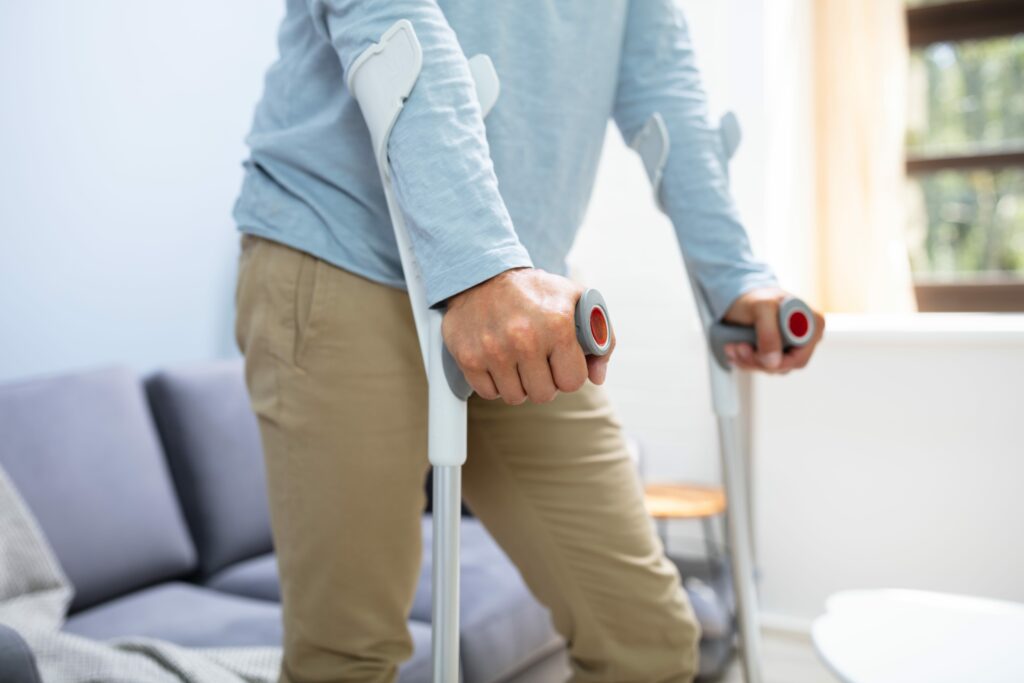Mr P fell from some scaffolding and sustained a multiple fragment fracture to his distal left radius (the larger of the two bones of the forearm). The fracture was significantly displaced.
Mr P attended A&E at Medway Maritime Hospital where a splint was applied and he underwent manipulation under anaesthetic in an attempt to re-align the fracture. A plaster cast was then applied, and Mr P was informed he would need further surgery in due course. The treating medical staff failed to consider and discuss the risks and benefits of surgical, as well as non-surgical treatment with Mr P. They should have instead proceeded with surgery to pin and plate the fracture shortly after Mr P presented to A&E.
Subsequent scans revealed shortening of the radius and irregularity of the distal radial articular surface. Further imaging revealed dorsal tilt and apparent displacement of the dorsal element of the distal radial surface. The position of the fracture was not acceptable and required surgery to realign the bones but instead, Mr P was placed in a POP cast.
Mr P was seen again in the fracture clinic five weeks after his accident. X-ray confirmed the radius was shortened further and that there was evidence that the fracture had not united. Again, the position of the fracture was unacceptable and necessitated surgery, but instead the cast was removed and Mr P’s wrist placed in a splint.
Mr P had a follow up appointment two months later and a CT scan was taken. He was advised he required an opening dorsal wedge osteotomy, insertion of bone graft of his iliac crest and ulnar shortening osteotomy. This took place on four months later. This surgery was altogether more complicated than pinning and plating of the fracture.
Jenny Waight, specialist clinical negligence lawyer, was instructed to act on Mr P’s behalf. She obtained a medical report from an orthopaedic consultant, who argued that Mr P should have received surgery earlier. Due to the delay in undertaking surgery, Mr P required a more complex surgery, which delayed Mr P’s recovery and accelerated symptoms of radio-carpal arthritis. Mr P was a subcontracted carpenter and builder and so his future earning capacity was adversely affected as a result.
Jenny successfully obtained an out-of-court settlement of £95,000 to compensate Mr P for his pain and suffering and financial losses.
Jenny specialises in orthopaedic cases. If you would like to ask Jenny a question about a potential case, or if you have a general query about any clinical negligence, contact Jenny Waight at Thomson Snell & Passmore solicitors on 01892 701210 in confidence.












